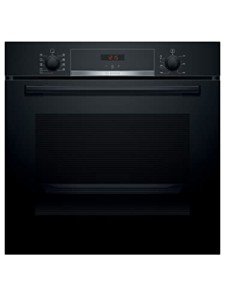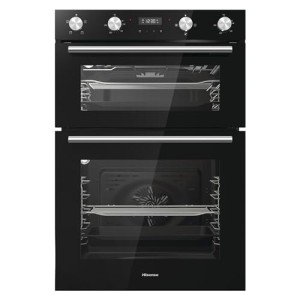Guide To Builtin Ovens: The Intermediate Guide The Steps To Builtin Ov…
페이지 정보
작성자 Kimberly Shin 작성일25-05-18 07:56 조회3회 댓글0건관련링크
본문

The Rise of Built-in Ovens: Enhancing Modern Kitchens
In the ever-evolving world of home improvement, built-in ovens have actually become a staple in contemporary kitchen design. These appliances not only offer a smooth and smooth aesthetic however likewise contribute substantially to the functionality and performance of home cooking. This short article looks into the various aspects of built-in ovens, including their advantages, types, installation factors to consider, and maintenance, together with frequently asked concerns to provide a thorough overview.
What is a Built-in Oven?
A built-in oven is a home appliance created to be installed into kitchen cabinetry, offering it a structured appearance and maximizing counter space. Unlike standard freestanding ovens, which stand alone and are typically large, built in range-in ovens fit flush with kitchen cabinetry for a more best integrated ovens look. They are readily available in numerous sizes, styles, and functions, dealing with a wide variety of cooking requirements and kitchen designs.
Advantages of Built-in Ovens
Built-in ovens come with many advantages that make them attractive to homeowners. Below are some of the crucial advantages:
- Space Efficiency: Built-in ovens save counter space while optimizing kitchen layouts.
- Customizable Design: They can be integrated electric oven into cabinetry, allowing property owners to tailor looks according to individual taste.
- Enhanced Performance: Many built-in ovens come equipped with advanced cooking technologies, enabling better heat circulation and faster cooking times.
- Availability: Their setup at eye level makes it much easier to examine food without flexing down, providing higher convenience and safety.
- Resale Value: A modern-day, properly designed kitchen can enhance residential or commercial property value, making built-in ovens an investment worth considering.
Kinds Of Built-in Ovens
Built-in ovens can be classified based upon their style and function. The following list describes the typical types of built-in ovens readily available on the marketplace:
- Single Ovens: A standard design that includes one cooking compartment.
- Double Ovens: These featured 2 separate compartments, which enable cooking numerous dishes at various temperature levels.
- Wall Ovens: Installed into the wall for a space-saving solution, these ovens use benefit and ease of access and can be either single or double.
- Steam Ovens: These make use of steam for wet cooking and are typically preferred for healthier meal preparation.
- Convection Ovens: Designed with a fan that circulates hot air, guaranteeing even cooking and browning.
| Type | Description | Suitable For |
|---|---|---|
| Single builtin oven | One cooking compartment for standard baking and roasting. | Small households and kitchens. |
| Double Oven | 2 compartments for simultaneous cooking of different dishes. | Large households with varied menus. |
| Wall Oven | Built into the wall for simple access. | Space-conscious cooking areas. |
| Steam Builtin oven | Cooks utilizing steam for much healthier alternatives. | Health-conscious individuals. |
| Stove | Flows hot air for even cooking and much faster results. | Baking enthusiasts and chefs. |
Setup Considerations
Choosing to install a built-in oven involves numerous considerations to ensure that it fits seamlessly within the kitchen. Important factors consist of:
- Cabinet Dimensions: Accurate measurement of the cabinet space needed for the oven integrated is vital for a correct fit.
- Power Supply: Built-in ovens normally need a devoted power supply; seeking advice from a certified electrician may be essential.
- Ventilation: Ensure that the oven's ventilation requirements are met to promote safe operation.
- Regional Building Codes: Compliance with local codes is important when setting up any kitchen appliance.
It's strongly suggested that setup be performed by specialists to make sure safety and adherence to manufacturer specifications.
Maintenance of Built-in Ovens
Keeping built-in ovens is vital to ensure their longevity and operation. Below are some pointers for reliable upkeep:
- Regular Cleaning: Wipe down surface areas after each usage to avoid accumulation; consider self-cleaning alternatives if available.
- Examine Seals: Inspect the oven door seals regularly for wear and tear to keep performance and avoid heat loss.
- Adjust Temperature: Occasionally check and adjust oven temperature settings if cooking results are inconsistent.
- Expert Servicing: Schedule regular upkeep with certified professionals for electrical components and deeper cleaning.
Frequently Asked Questions (FAQs)
Q1: How do I select the ideal size built-in oven for my kitchen?
A1: Measure the readily available cabinet space and think about the cooking habits of your home. Single or double ovens are typical options based on meal preparation needs.
Q2: Are built-in ovens more energy-efficient than freestanding ones?
A2: Built-in ovens can be more energy-efficient due to better insulation and advanced cooking innovation; nevertheless, actual effectiveness depends on the particular design and usage.
Q3: Can built-in ovens be set up throughout the kitchen?
A3: Built-in ovens require particular cabinets and might need a dedicated power source, so preparing their positioning thoroughly within the kitchen layout is essential.
Q4: What type of upkeep do built-in ovens need?
A4: Regular cleaning, checking door seals, adjusting temperatures, and professional servicing as required are all parts of proper upkeep.
Built-in ovens are an exceptional addition to contemporary kitchen areas, using both visual and practical benefits. Their space-saving design, adjustable alternatives, and advanced functions accommodate varied cooking needs. When thinking about a built-in oven, property owners ought to take into account their specific cooking choices, kitchen design, and upkeep abilities. By doing so, they would be making a valuable financial investment in their home, increasing both performance and design.

댓글목록
등록된 댓글이 없습니다.



